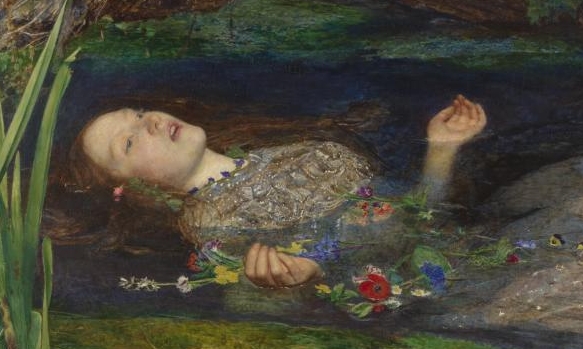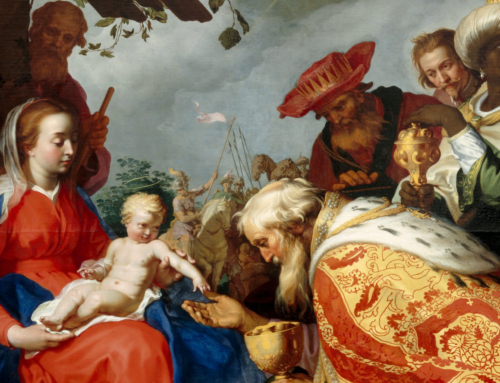O, that this too too sullied flesh would melt,
Thaw, and resolve itself into a dew,
Or that the Everlasting had not fixed
His canon ‘gainst self-slaughter. O God, God,
How weary, stale, flat, and unprofitable
Seem to me all the uses of this world!
Fie on’t, ah, fie, ‘tis an unweeded garden
That grows to seed. Things rank and gross in nature
Possess it merely.
–Hamlet, 1.2.129-137
We find ourselves in an unhappy moment, when deep human questions are indelicately taken up as “political issues.” The mutilation of the body, the taking of weakened human lives, the alienation of psychically different persons from normal society, are enduring aspects of the human condition, and one winces to see them discussed by political candidates.
But this is the case in Shakespeare’s Hamlet as well. A thoughtful and funny young man, interiorly conflicted, is caught in a very unhappy moment: an uncle has killed Hamlet’s father, the king of Denmark, and married his mother. Hamlet’s psychological and spiritual problems, already a threat to the balance of state affairs before the murder, are now the object of nervous speculation for those who have wronged him, and have much to lose.
Hamlet just wants to die. He wants his body to melt. This world is disgusting and painful. The only thing holding him back is his knowledge that God has set a law against suicide.
Is it not true that the laws of the state are often “fixed ‘gainst self-slaughter” too? It is a striking understatement to call suicide “illegal.” Suicide is nothing less than awful. And yet this law tells a deep truth. Law not only prohibits; it also teaches. Hamlet knows that power over his own body is somehow distributed among various holders. He recognizes the most important holder as God, whose management of physical nature he brings into question, calling his creation “an unweeded garden/ that grows to seed.” But his desire to “thaw” himself out of existence is checked by this knowledge.
Why is suicide illegal? What does this law of God, and sometime law of man, mean?
Power over our own bodies comes to us gradually, in youth. In old age, it gradually weakens. This phenomenon, among other things, has led some to believe that our body is just a vehicle for our soul. Many great Christian thinkers have thought so. But Thomas Aquinas did not, and neither should we. Our immortal souls do leave our bodies when we die. But while we live, our soul is not a captain standing at the body’s helm. Instead, the soul is a unifying form, present throughout the body. It is life and intelligence for a unique evolutionary marvel of a body, a spiritual form created by the God who is Spirit.
For a time, our power over our bodies feels absolute. It creates the illusion that we may remake our bodies; the illusion that we may unmake other persons’ bodies; and that we may unmake our own selves. But these illusions are checked by the light of the Law. To some, God is very near. To those who do not know him, he is only an unresponsive, unreasonable legislator. To Hamlet, who can neither resolve to give his body to the woman he loves, Ophelia, nor enjoy it for himself under the sick regime of his uncle, this law kills, by keeping him from killing himself.
Many philosophers today want to criticize the power that the state claims over our bodies. But whatever claims the state makes, Hamlet knows that there is a higher power, making a more imperious claim. The light of God’s law filters into our minds in various ways. In this case, it teaches the mind, the soul, that bodily life is a mystery. It belongs within a plan which we do not understand. This world is the unweeded garden of a wise gardener whose ways are obscure. Whether you fear him or love him, respect his craft.
“Things rank and gross in nature” tend toward unforeseen “uses” in the divine plan. If you feel trapped in a body, or weary with bodily life, or inclined to end the lives of others, then you are a human being. Don’t seek to change that, but wait to see what will become of this strange state of affairs: “What we shall be has not yet been revealed. We do know that when it is revealed we shall be like him, for we shall see him as he is” (1 John 3:2).
✠
Image: Sir John Everett Milais, Ophelia (CC-BY-NC-ND 3.0)







